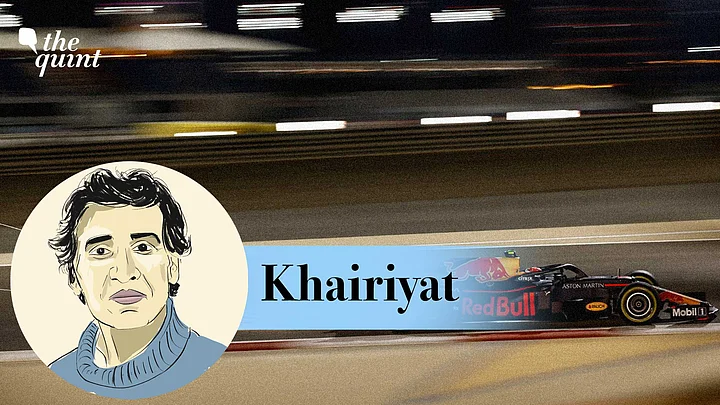We live in the age of speed. Actually, it has been argued—usually by serious thinkers who are ignored in mainstream and media discussions that speed has been the distinguishing aspect of industrial and now post-industrial capitalism, and that while we have focussed on and even wildly celebrated its advantages, we have often ignored its disadvantages and destructive consequences.
It would have taken at least two days to travel a thousand kilometres by horse. The average speed of a horse is around 40 kmph over longer lengths. So, technically speaking, this could be done in about one day, but obviously, no horse can be ridden without a break for a day, or actually at 40 kmph for more than a couple of hours. Even with a relay of horses, this would take more than a day.
The Many Transitions of Speed & Levelling Up!
When the first practical steam engine was launched in 1804, it averaged about 16 kmph. Its speed increased with every new development and the record for steam engines set in the first half of the twentieth century, stands at 203 kmph.
Soon afterward, steam engines were replaced by diesel and electric locomotives, and today, they can easily cruise at over 300 kilometres an hour. I am not even going to talk about planes.
All this sounds very good. But there is another side to speed. Perhaps, unconsciously symbolised in the use of ‘speed’ refer to the illegal drug (except when used for rare medication), methamphetamine. This is a powerful and addictive central nervous system stimulant, chemically related to amphetamine, whose abuse leads to a short and intense feeling of pleasure (a ‘rush’), but whose negative effects apart from addiction, including high blood pressure, heart attack, stroke, kidney failure, etc.
Withdrawal from ‘speed’, which is possible but needs to be medically supervised, creates severe depression, fatigue, anxiety, and psychosis. And, of course, a relentless and intense craving for the drug.
How the Culture of Speed Abuse Dominates Fast-Paced World
I am using the example as a kind of metaphor. What I am trying to say, and what philosophers have often said lately, though it is seldom that you will get to read them in popular publications, let alone hear them on television, is: the craving for speed comes with certain dire consequences. It has its uses and abuses.
The reason why the abuses are less often considered or covered in media is that the dominant mode of power today, which some people call 'Capitalism', is based on the celebration of speed. The myths are all about how fast we can go, do, talk, produce, and consume. There is no political leader who can survive without talking about the endless acceleration of ‘development’ despite the fact that we live on a planet of limited resources. Billionaires go one step further at times, and talk of acceleration in space. In the process, no one pays attention to what speed also destroys, or prevents us from seeing.
Just as the drug ‘speed’ is addictive, so is the rhetoric of acceleration in the world. Gandhiji was one of the very few world leaders who saw this clearly and had the courage to say so. Unfortunately, though, when criticism of the endless acceleration of the world is made, it is taken over by conservatives or reactionaries who want to return to some imagined golden age of the past.
This is not desirable for there was no real golden age in the past anywhere in the world, just some periods that were a bit better than others. It is also not possible, because movement is a condition of existence: the problem is the pace of movement not its existence. Things cannot be as they were in the past.
On Matching Steps With a Balanced Way of Life
But at what pace do we want to move? And what are we willing to destroy in the course of that movement? Bear in mind that speed does not just impact the world out there. Think, as an example of a car crashing into a crowd at 100 kmph compared to a pedestrian stumbling. The impact on the world out there will be very different in both of these cases.
But, just as importantly, speed also impacts the person who is speeding, even when nothing untoward happens. Again, simply as an example, think of taking a stroll or a cycle tour, and compare it to a car trip or a journey by train. You will see things differently. And if you take a flight, well, no matter whether you are flying from New York to Delhi or Harare to Tokyo, you will essentially see the same things. This is also what speed does to you: it curtails some of your sight.
It seems that human beings have a tendency to either celebrate or dismiss a change. Hence, I am sure there will be readers who will write to me after reading this article and argue militantly in favour of speed.
There will also be readers who will argue militantly against speed and talk nostalgically about some real or imagined past of tree shades and paper ships. But I grew up about ten kilometers from where Lord Buddha attained enlightenment, and I think that what we need is some version of a middle path. But that will only happen if we start questioning our current fascination with speed, sold to us by politicians and businessmen.
(Tabish Khair, is PhD, DPhil, Associate Professor, Aarhus University, Denmark. He tweets @KhairTabish. This is an opinion article and the views expressed are the author’s own. The Quint neither endorses nor is responsible for them.)
